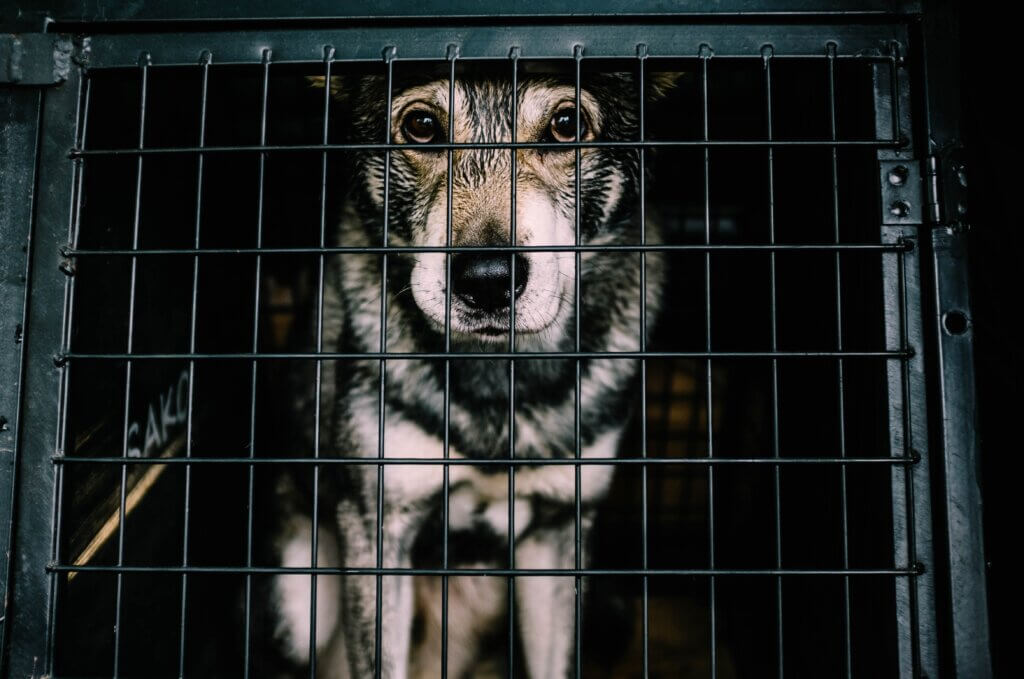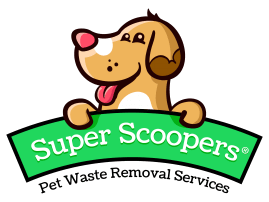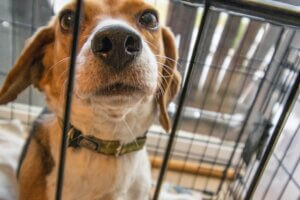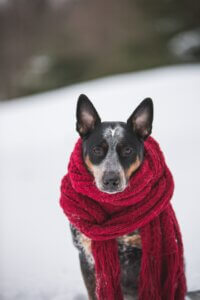It’s the Season for Kennel Cough. Here’s What Dog Owners Need to Know.

The holiday season is filled with fun and merriment, but it is also the season for kennel cough in dogs. With many people traveling and boarding their dogs over the holidays, it raises the number of dogs getting sick. Before we go too much further, you should know that kennel cough isn’t as scary as it sounds. However, dog owners still need to know what it is and what to do if they come home from Christmas vacation to a sick pup.
What is Kennel Cough?
First things first, let’s talk about what kennel cough is. According to Purina, “Kennel cough is the common name for canine infectious tracheobronchitis. It’s a respiratory infection in dogs caused by a wide range of bacteria and viruses. Kennel cough is highly contagious […] It creates an inflammation of the dog’s upper respiratory tract, including the trachea (windpipe) and larynx (voice box).”
The reason for its name is because it is typically spread in kennels or other places where large groups of dogs are kept close together (including training facilities and dog parks).
How Do Dogs “Catch” It?
There are many different causes of kennel cough, with the most common being Bordetella bronchiseptica. If the term Bordetella sounds familiar, it is because sometimes it is referred to as Bordetella and most kennels require a Bordetella vaccination for dogs to be boarded.
Fetch by WebMD explains, “Dogs ‘catch’ kennel cough when they inhale bacteria or virus particles into their respiratory tract. This tract is normally lined with a coating of mucus that traps infectious particles, but there are a number of factors that can weaken this protection and make dogs prone to kennel cough infection.”
Unfortunately, it is spread very easily from one dog to another – especially if one pup is by another who sneezes, coughs, or even barks. Dogs can also spread it by sharing toys, food and water dishes, and playing and nuzzling together. Basically, all the things dogs typically do can spread these germs.
That’s not all. Some dogs are carriers without having the typical symptoms. According to Trupanion, “A dog can carry kennel cough and show no symptoms at all yet still pass on the infectious organisms to other dogs. As such, a dog might seem safe for your pet to interact with and still be carrying kennel cough.”
What are the Symptoms?
The most obvious kennel cough symptom is a strong cough that almost sounds like a goose honk. The American Kennel Club (AKC) also lists the following symptoms:
- runny nose
- sneezing
- lethargy
- loss of appetite
- low fever
If you have boarded your dog over the holidays and he comes home with these symptoms, it is time to call your veterinarian.
[Related Read: 7 Alternatives to Dog Boarding Facilities This Holiday Season]
Is Kennel Cough Serious?
Typically, it is not serious and goes away after a week or two of rest (similar to most human colds). However, there are times when it leads to more serious problems. For example, some dogs may develop a fever as a result. And in the most severe cases, dogs may develop pneumonia. However, this is rare.
How Is It Treated?
The good news is that kennel cough is easily treatable and often does not require any type of special treatment. Veterinarians tend to recommend rest and isolation for dogs. If the dog has a more serious case or one that does not go away by two weeks, veterinarians may recommend chest x-rays or antibiotics. Fetch by WebMD explains, “Although most cases of kennel cough will resolve without treatment, medications may speed recovery or minimize symptoms during the course of infection. These include antibiotics that target Bordetella bacteria and cough medicines.”
Additionally, it is wise to switch to using a harness rather than a leash with a collar when walking a dog with a cough. The collar and leash will aggravate the cough.
Is There a Way to Prevent Kennel Cough?
Since it is easily spread from dogs simply being dogs (playing together, sharing toys, etc.), it seems like it would be difficult to prevent it. Fortunately, there is a vaccine to prevent it. While most of the time it is caused by Bordetella bacterium, there is a Bordetella bacterium vaccination.
AKC explains, “The vaccine is available in oral, intranasal, and injectable forms, and depending on the form, it is usually initially given in two doses two to four weeks apart, followed by a booster every six months to a year.” Often, boarding facilities, doggie daycares, and training programs require proof of this vaccination.
However, there are some cases where it is not caused by Bordetella; so, if you notice any of the kennel cough symptoms, contact your veterinarian.
While Super Scoopers can’t treat your dog for kennel cough, we can help get your yard ready for extra guests and four-legged visitors this holiday season. Contact us to learn more about our scooping services!





